Bespoken Word – You are the problem, not your bike
Guy Kesteven reckons it’s time most of us stopped thinking about what we can upgrade on our mountain bikes to go faster and look at the real weak link in the system – ourselves
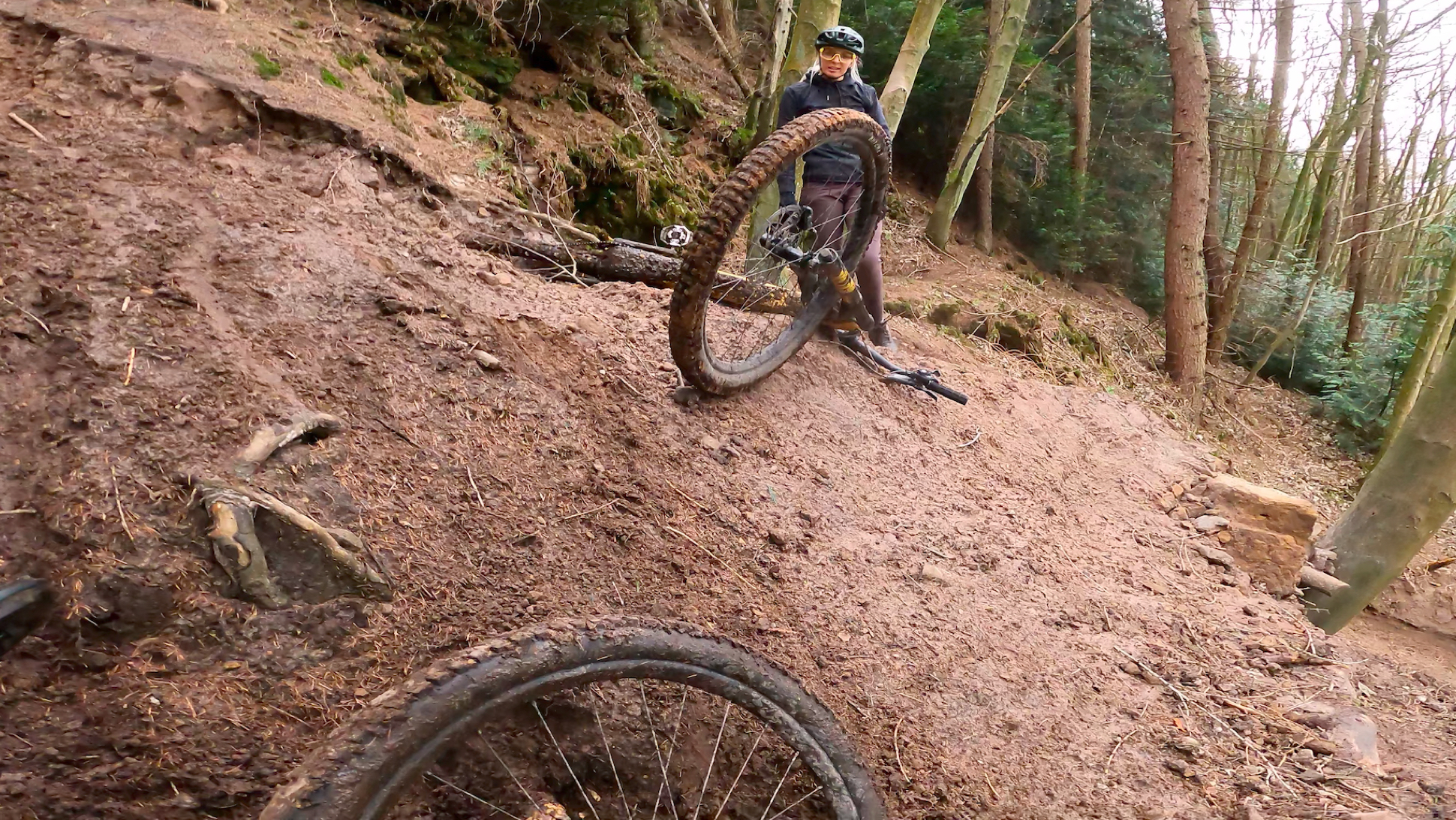
Obviously, if you’re Jenny Rissveds or Viktor Koretsky, who both probably lost World Cup XCO races last week due to mechanicals, then you can legitimately blame the bike. In practically every other situation I’ve been in though, a gifted rider on a crap mountain bike will still beat a less skilled/fit one on a better mountain bike.
The power to propel more weight faster. The lungs to suck a summit down towards them faster than most folks get to a horizon on the flat. The body awareness and reactions to lean a slippery tire harder through turns or keep it connected on climbs. The nonchalant hop and pop to clear roots and rocks that poor suspension would have choked on. The confidence to really put the catch in catch berms, so bad brakes don’t matter. I’m sure you could go on yourself with specific examples and actual rider names whether that’s your favorite YouTube steeze artiste or the local hero that makes you feel ‘less’ on every ride.
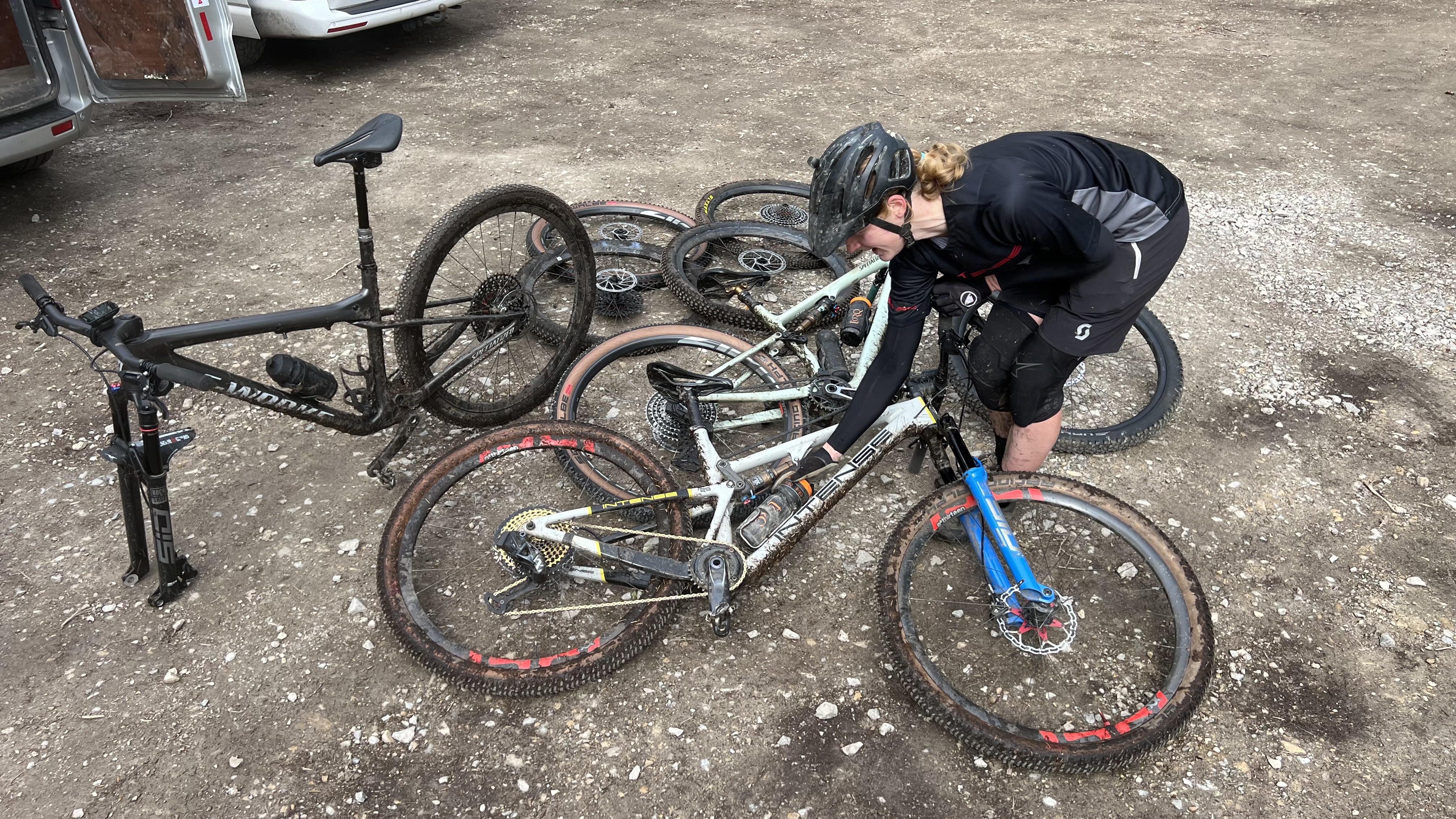
Gearing up
The weird thing is we all know this deep down, but what do most of us do about it? We try and buy our way around it. And not by paying for a coach to write us a personalized training plan or pick apart our bad cornering habits. No, we spend our cash on the latest tire with the must-have compound. The best MTB wheels that save us a couple of hundred grams. Swapping aluminum for carbon fiber or trading up on suspension travel to cover up a lack of skill.
And let’s be very honest here, the part I play in this is basically a drug pusher. Telling you how much better your ride will be if you snort up the trail via one less degree of head angle. How mainlining a DH with this new damper will be the biggest rush ever. “It’s what the pros use maaaate, you’d be mad not to try it”, “just give it a go at a demo day, I promise you won’t get hooked” etc.
Because I’m probably the very worst example of this delusional state of denial. After all, I’ve made looking for things to compensate for my lack of skill and fitness into a career for the best part of thirty years. For example, I’ve officially spent most of this week back-to-backing different combinations of cross-country rubber ready to update our XC tires buyers guide. The real driving force is to find a pairing that'll help me keep the ever-faster Thursday Night Fight Club crew in sight though. Either way, it's so far involved days of back-and-forth tire fitting, pumping to matching pressures, and wheel swapping in the workshop. Then hours and hours of comparative testing trying to determine tiny vector changes in grip, rolling speed, and flow that could probably all be bracketed within a few percent. That included Wednesday morning spent looping around the local trails from the van with some local speed freaks and that's when the silliness of where we place our 'upgrading' priorities really became clear.
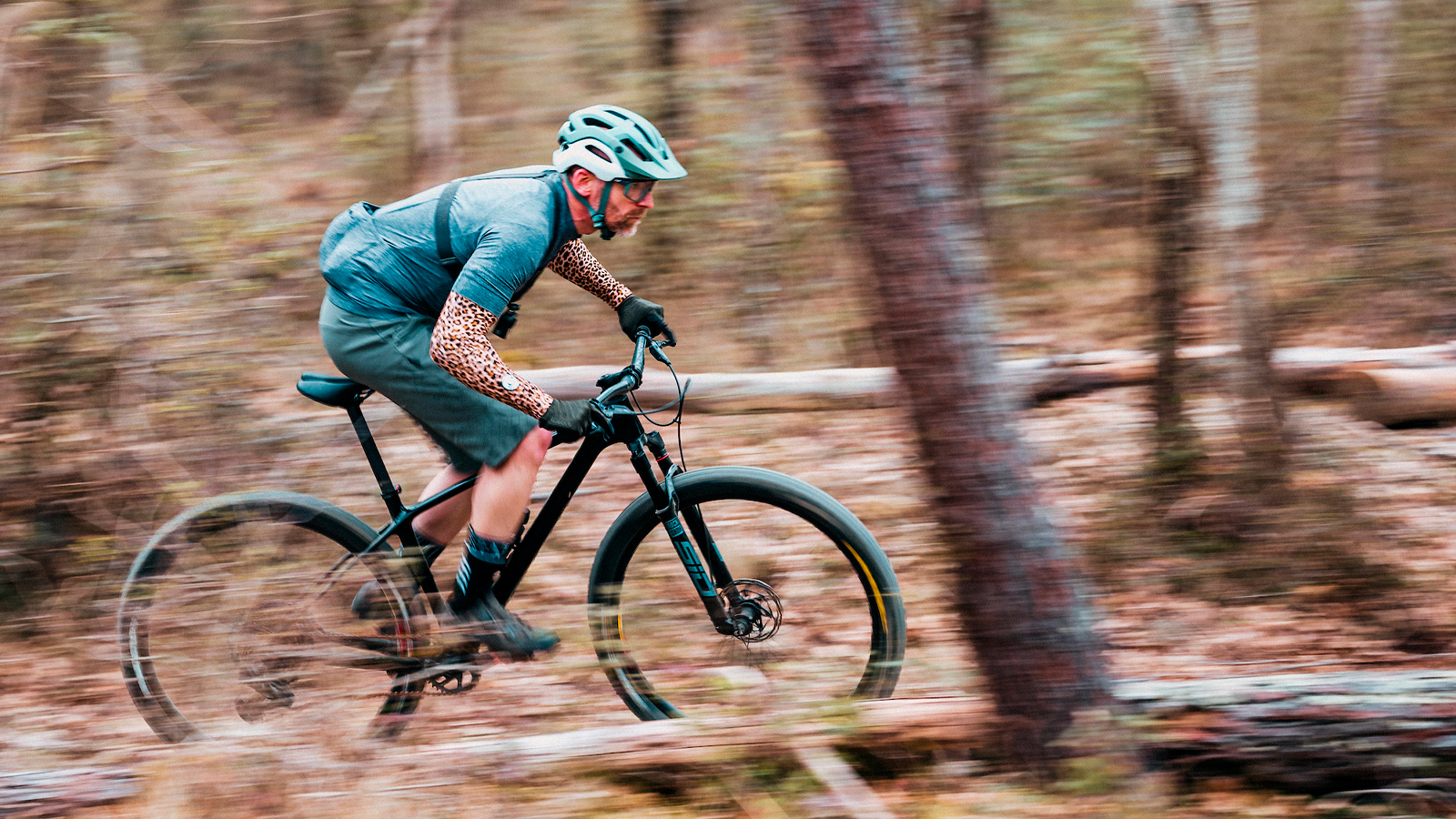
What goes up must come down
Can you imagine if I’d spent that same amount of time and attention practicing how to go around those corners faster regardless of what was connecting me to the trail. How much easier the climbs back up would have been if I’d invested workshop hours in waving some weights around instead. Or some intensive intervals, not intensive track pumping?
What made this even more obvious is that we were joined by a couple of local XC racers who were fresh from the first XC Nationals round the previous weekend. They were keen to work out the ultimate tire choice for the next round by joining in our swap shop and their feedback was really interesting and useful. The real take home for me though is what they were focusing on for improvement. Given that one of them trains pro tour riders and Olympians for a living, I’m sure they were right to be confident that they could raise their wattage by the required amount to be competitive if they devoted the next 12 weeks to it. However, their confidence and speed, on technical sections was definitely not competitive, but they didn’t seem to see that as the obvious easy gain to work on.
This was made even more apparent by the fact that we also had local racer Amy Henchoz with us. She started riding/walking with our local riding group during lockdown, but quickly became one of the top XC and XCM riders in the country. Complete with the National Marathon champ jersey and a place at the Marathon World Championships to match. Her determined rise from hours on an exercise bike in the bowels of an Indian Ocean survey ship (seriously, her biography is going to be brilliant), to the top of podiums was impressive. However, the biggest sea change in her speed was the three hours she spent skills training with Sam Copp in the Forest of Dean. That turned her from the one we waited nervously for at the bottom of descents to see if she’d survived, to a rider who I struggled to keep in sight on downhill runs. That seems like a very high-value investment in terms of speed gain compared to a new carbon handlebar.
On the flipside, I’m sure there are plenty of very gifted gravity riders out there who’d be even quicker to the bottom if they put some time into improving their fitness so they weren’t gassed halfway down.
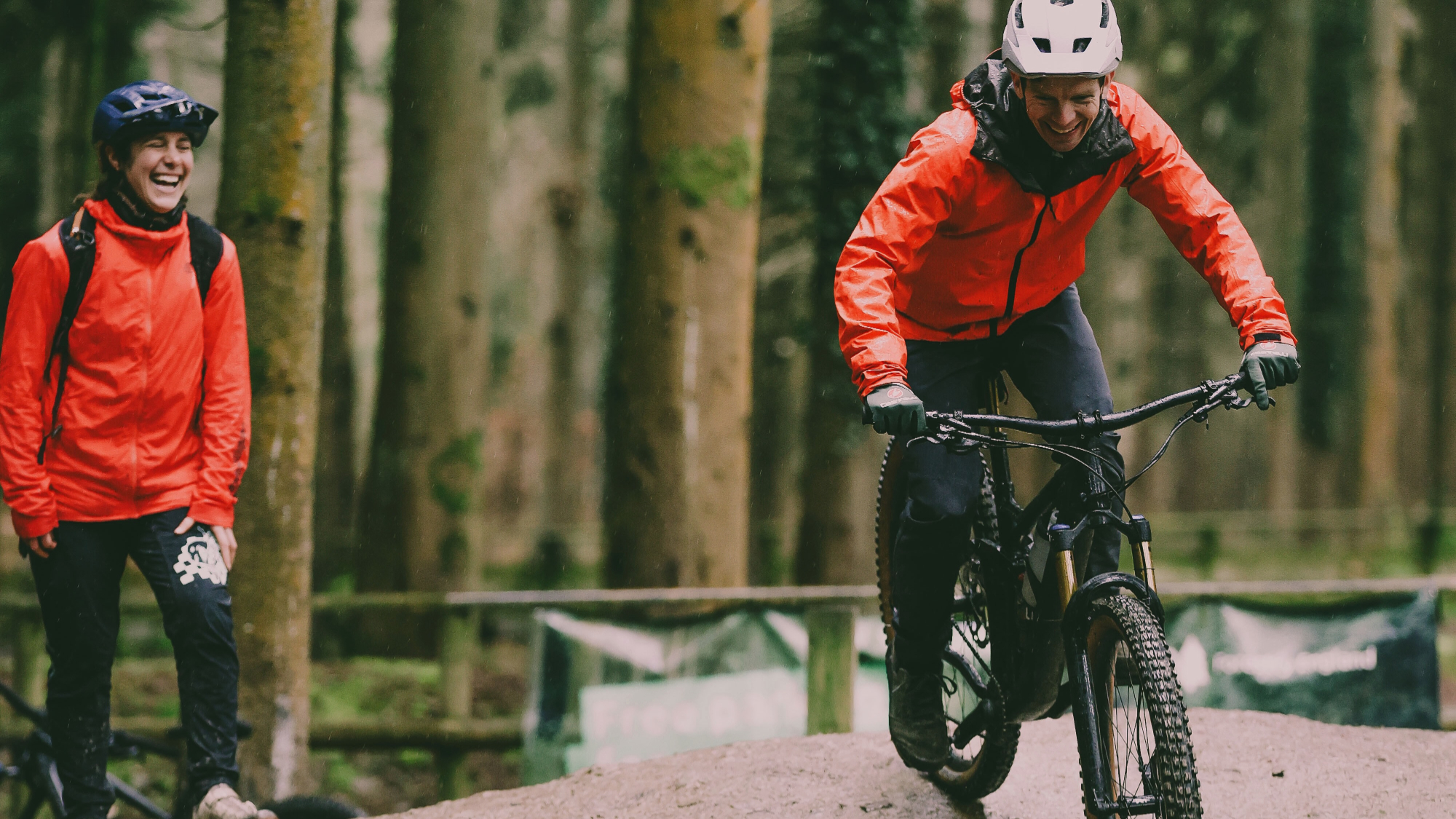
Practice what someone else preaches
But then the realistic truth is that most of us are pretty damn tired and time-crunched from #life in general already. That means a bit of review reading and online shopping on the sofa is a lot easier in terms of a quick fix than getting up an hour earlier to train. And that just riding how we always do and wondering why we don’t get better is an easier habit to fall into rather than hitting the same corner over and over again like a chained Bulgarian bear.
I’m certainly not suggesting that you mug off having fun on your mountain bike in favor of a monastic lifestyle of punishment and penitence. And please don’t stop reading reviews and being excited about the new gear my Bike Perfect colleagues and I keep trying to push your way either, because I really don’t want to go straight and get a proper job after all this time. Not least because I don’t have any real skills beyond being able to get incredible anal about tiny differences between components and performance in a way that a pea-sensing, multi-mattress surfing princess would roll her eyes at.
I’d definitely give Sean Fishpool’s excellent “I didn’t realize I’d been making these three common MTB riding mistakes for 25 years, but here's how I fixed them” feature a read to see just how much a bit of coaching can unlock way more speed and confidence than components can. And you never know, I might even get around to practicing what I preach for once and head for the Forest of Dean to swap decades of frustration for some actual progress myself by practicing what someone else preaches.
It’ll obviously take me ages to decide what bike and what kit to take down for the lesson beforehand though, rather than spending that time actually improving the real issue: Myself!
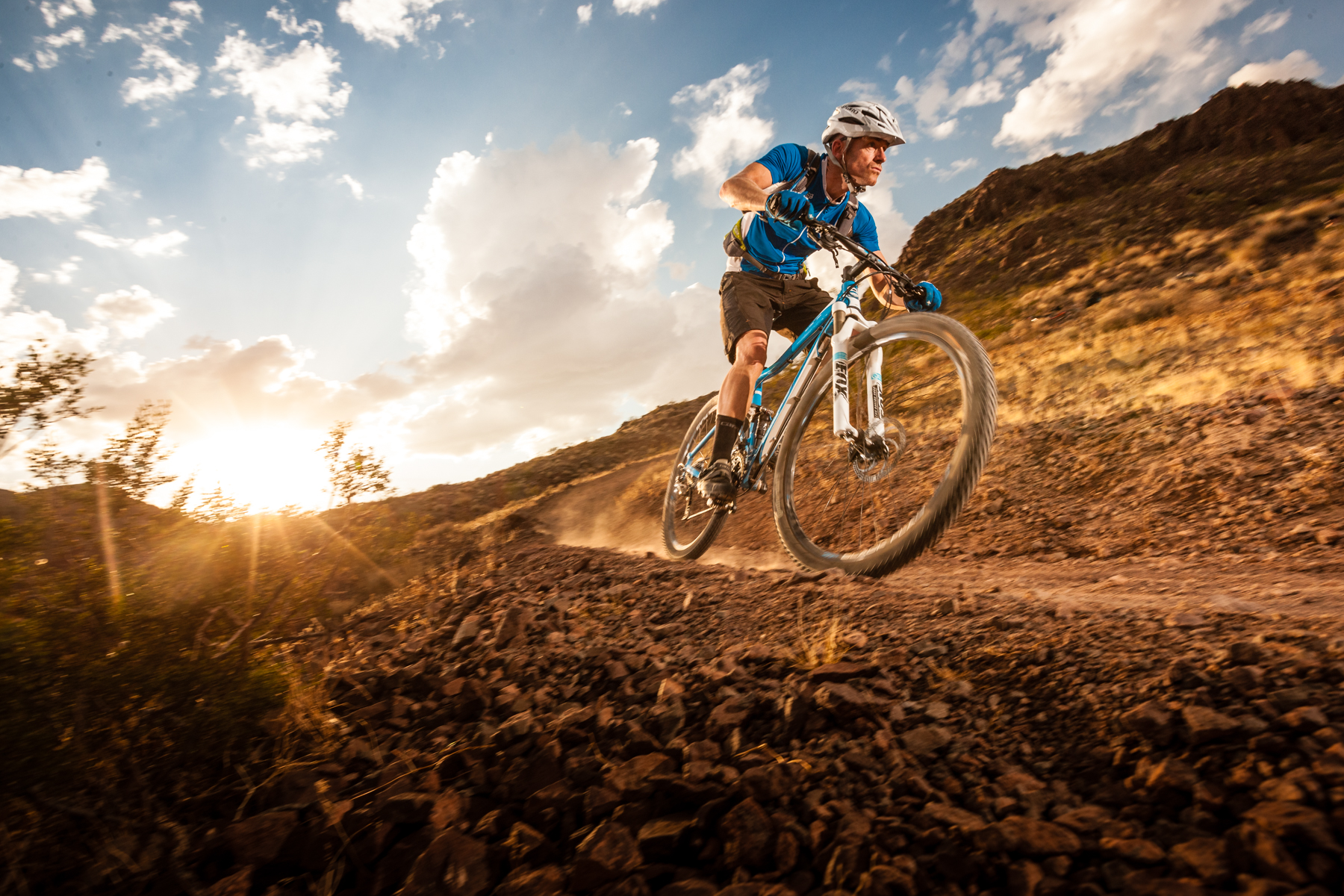
Guy Kesteven has been working on Bike Perfect since its launch in 2019. He started writing and testing for bike mags in 1996. Since then he’s written several million words about several thousand test bikes and a ridiculous amount of riding gear. He’s also penned a handful of bike-related books and he reviews MTBs over on YouTube.
Current rides: Cervelo ZFS-5, Specialized Chisel, custom Nicolai enduro tandem, Landescape/Swallow custom gravel tandem
Height: 180cm
Weight: 69kg
